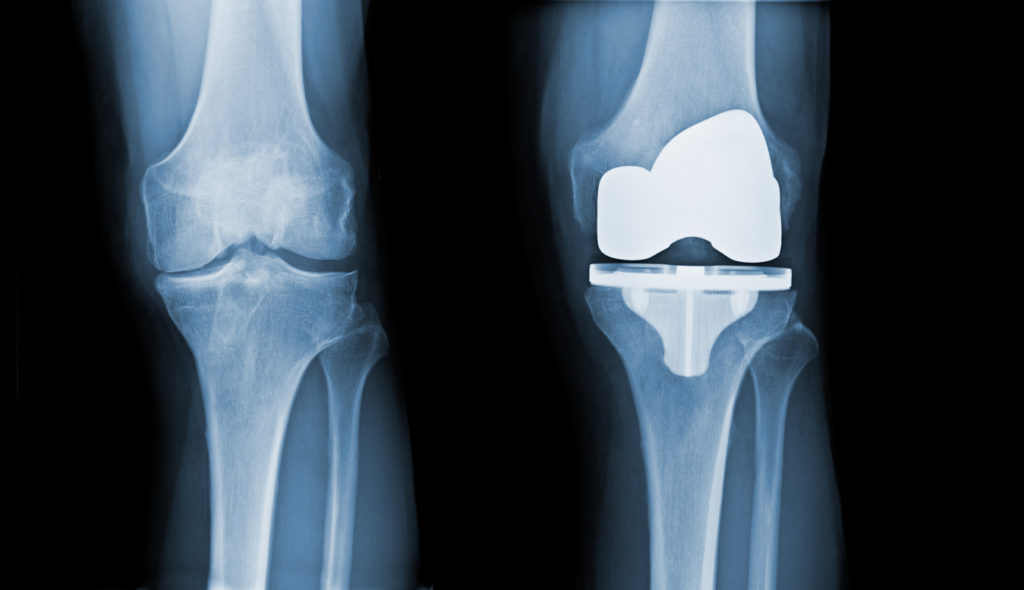
Total knee replacement replaces damaged joint components with smooth and durable synthetic parts. Though highly successful, this surgery requires time, effort, and a detailed post-operative plan.
Let’s learn how you can best recover and enjoy free movement once again after knee surgery.
Recovery From Knee Surgery Is Uniquely Yours
Healing time from knee replacement surgery varies according to your particular needs and planned outcomes. For instance, if you work at a desk all day, you’ll likely return to work fairly quickly–within a few weeks for a partial knee replacement or three months or so for a total knee.
However, if you have a higher activity level on the job–you’re an athlete or teacher who’s on her feet all day–plan on a longer recovery time. With either scenario, you’ll begin physical therapy and rehabilitation as soon as feasible after your procedure.
That being said, there are general principles and guidelines recommended by your knee doctor in Boynton Beach. Here are some tips to help you on the path to full recovery and wellness after knee surgery.
Proper position of your operated leg is important for healing and pain control.
Immediately after surgery, you will see bandaging on your operated knee. Also, your knee will be positioned straight. As you recover, that is the best way to position your leg when sleeping, watching TV, or otherwise seated or reclining.
You will use a knee brace and an assistive device, such as a walker or cane, as your physical therapist deems necessary.
As your body adjusts to your new knee, and as surrounding muscles strengthen, you will be able to eliminate these post-op supports. In the meantime, assistive devices are your best friends, as they keep you safe and allow you to move properly.
Treat your post-operative pain and swelling.
In the hospital, you may receive prescription painkillers for a limited period of time. At home, you may use a combination of acetaminophen and NSAIDS as your orthopedic doctor directs. Icing–20 minutes on and 20 minutes off–reduces swelling and pain, too.
Stay well-hydrated, and eat a nourishing diet.
Water promotes healing as does a low-fat, high protein diet. Fiber reduces post-operative constipation.
Stop smoking.
Cigarettes impair peripheral circulation and wound healing. Talk to your primary care physician ahead of your surgery about ways to cut down or quit.
Limit your trips up and down stairs and in and out of the car.
Your physical therapist will show you how to accomplish these movements efficiently and safely. However, keep your TV remote, phone, water bottle, and other necessary items within easy reach. Avoid heavy lifting and other activities that place excessive pressure and weight on your knees.
Communicate with your physical therapist.
Tell your physical therapist about the activities you wish to return to. For instance, if you are a cyclist, your therapist can tailor your strengthening and stretching exercises toward movements needed on a bike. In addition, do your physical therapy routine faithfully to keep your knee joint healthy and functional.
Keep all follow-up appointments with your orthopedic doctor.
Together, you and your knee specialist will determine the right time for you to return to work and other activities. Much depends on the pain medications you take, your reflexes, muscular strength, and other physical markers of recovery.
Total Knee Replacement Surgeons in Palm Beach
Our six board-certified orthopedic surgeons provide superior evaluation, treatment, and surgery focused on excellent outcomes. They are passionate about patient education, too.
To learn more about successful recovery from knee surgery, call our Boynton Beach office at (561) 733-5888. Or, fill in our appointment request form, and we’ll get back to you quickly.

